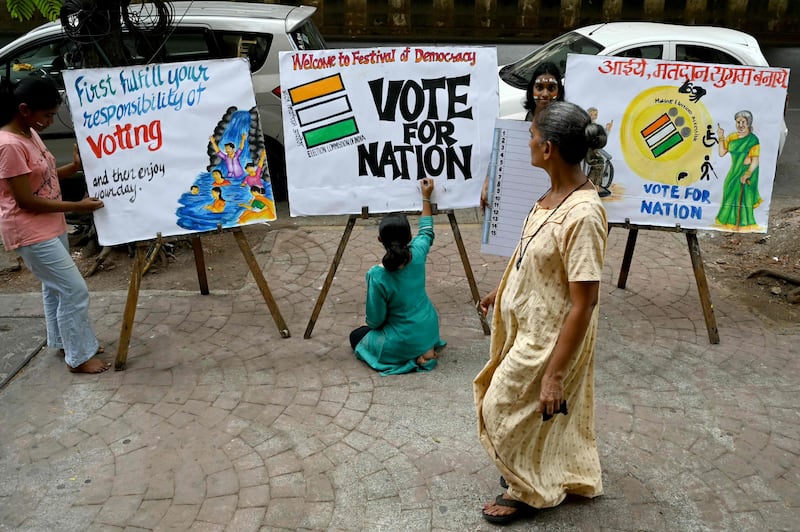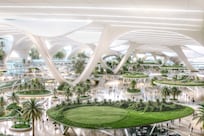Hundreds of millions of Indians will cast their votes in the first round of India’s general election, with polling due to start in more than 100 constituencies on Friday.
The world’s largest democracy with its population of 1.4 billion will hold staggered polls for the 543 seats in the Lok Sabha, the lower house of parliament, over 47 days until June 1. Nearly 970 million people are eligible to vote, with results expected on June 4.
This year’s election is the second longest. The country took four months to complete its first general election in 1951-1952 and 39 days in 2019.
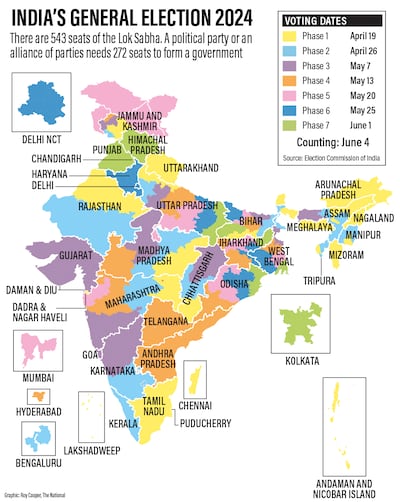
Most opinion polls and political commentators predict a comfortable win for Prime Minister Narendra Modi, who has gained popularity for championing the cause of the majority Hindu population.
His Hindu nationalist Bharatiya Janata Party (BJP) stormed to power in the 2014 election and won by an even bigger margin in 2019, pushing the country’s oldest and previously dominant party, the Indian National Congress, to the margins.
The Congress is leading the Indian National Developmental Inclusive Alliance (INDIA) bloc, made up of nearly two dozen parties, aiming to stop Mr Modi from becoming only the second Indian prime minister to serve three consecutive terms. The BJP leads a coalition of about 40 parties called the National Democratic Alliance (NDA).
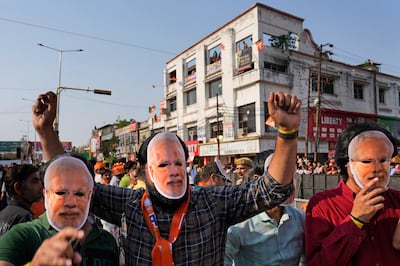
Round one
Voters in 21 states and all nine federally ruled territories will cast their ballots in the first phase of the election on Friday, with 1,625 candidates vying for 102 seats.
The Election Commission of India will set up polling booths within 2km of every voter while more than 15 million personnel, including security forces, will be on hand in a bid to ensure free and fair elections are held.
The BJP is in a direct contest against the Congress and its allies in Bihar, Assam, Madhya Pradesh, Maharashtra, Rajasthan, Uttarakhand and Chhattisgarh states.
The party will be tested in Tamil Nadu, which is holding polls for all 39 seats in the first round, with commentators predicting another dismal performance. Mr Modi has held a series of public rallies in the southern state to make inroads against Dravida Munnetra Kazhagam, the dominant regional ruling party that is part of the INDIA alliance.
The BJP will be in direct contest with regional political powerhouse All India Trinamool Congress in the eastern state of West Bengal and attempt another clean sweep against the Samajwadi Party in Uttar Pradesh. The northern state, home to more than 200 million people, sends 80 members to Parliament and is considered a key battleground in national elections.
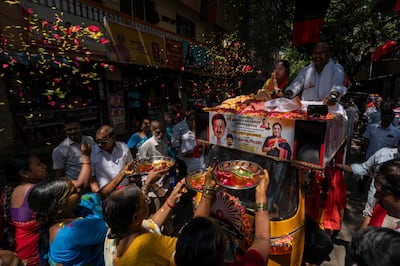
Problems and pledges
The BJP has been campaigning on its success in fulfilling past poll promises – spending billions of dollars on developing infrastructure such as roads, waterways and airports, and building toilets and homes for the underprivileged. Mr Modi has pledged to make India a developed country by 2047.
The party has launched a “Once Again Modi” campaign, pledging to work for the youth, women, the underprivileged and farmers.
But opposition parties have accused Mr Modi of dividing the country on religious lines and failing to boost the economy, redress inflation and tackle unemployment.
The BJP has also promised “One Nation, One Election” – holding elections to Parliament and state legislatures simultaneously, which it says will increase transparency, reduce costs and improve governance – and to introduce a Uniform Civil Code covering marriage, divorce, inheritance and adoption. The code will replace the current personal laws that allow religious communities such as Muslims and Christians to follow their practices of their faith in these matters.
The party has been counting the construction of Ram Temple as one of its biggest achievements of Mr Modi's second term.
The grand temple, built on the site of 16th-century Babri Masjid, opened in January after decades of legal wrangling following its demolition by supporters of the BJP and other Hindu right-wing groups in 1992.
Mr Modi has accused his political rivals of being anti-Hindu and invoked majority religious sentiments to woo voters, which his critics say is a breach of the election guidelines.
His opponents also accuse him of polarising the country based on caste and religion, and pursuing an agenda of Hindu hegemony by targeting religious minorities.
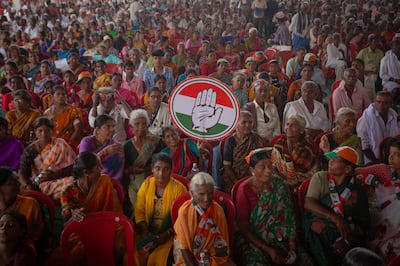
"Elections in India are a massive exercise of democracy. But in trying to win, political leaders also need to be responsible,” said Meenakshi Ganguly, Asia deputy director of Human Rights Watch.
“They should not engage in hate speech or incite violence against particular religious and ethnic groups by singling them out during their campaign activities or on social media, and they should prevent their supporters from doing so as well.”
The main opposition Congress led by Rahul Gandhi has challenged Mr Modi by promoting an agenda of “justice”.
The party lost power to Mr Modi in 2014 after a decade-long reign and since then has witnessed a decline in its electoral fortunes.
Mr Gandhi has accused his opponent of undermining India’s democratic system, damaging law enforcement and the judiciary, and targeting journalists and dissenters in a widespread crackdown.
The INDIA bloc, including Aam Aadmi Party, which rules the capital Delhi and the neighbouring Punjab state, has pledged to defeat Mr Modi’s party to uphold the constitution and democracy.
It has promised to increase basic wages, job guarantees, affirmative action for caste groups and to uphold religious and personal freedoms.
The second phase of polling for 89 seats in 13 states and federally ruled territories will be held on April 26.
